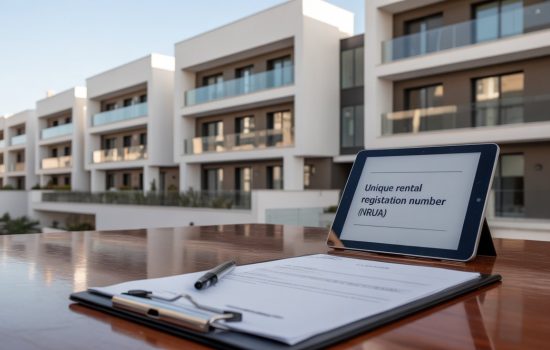
Investing or living in Spain comes with certain tax obligations. Many foreigners make mistakes due to a lack of knowledge about the Spanish tax system, leading to unnecessary payments and fines. In this article by Fuster & Associates, we explain the 5 most common tax mistakes for foreigners in Spain and how to avoid them
1. Not Differentiating Between Tax Resident and Non-Resident
One of the most frequent mistakes is not knowing whether you are a tax resident or non-resident in Spain.
- Tax resident: If you live in Spain for more than 183 days a year, you must pay taxes on your worldwide income.
- Non-resident: If you stay in Spain for less than 183 days, you only pay taxes on income generated in Spain.
Failing to declare your tax status correctly can lead to unnecessary tax payments or penalties.
2. Not Obtaining the NIE on Time
The Foreigner Identification Number (NIE) is mandatory for any financial transaction in Spain, including buying property or opening a bank account.
- How to avoid it: Apply for your NIE as soon as possible at a police station or the Spanish consulate in your home country.
3. Not Declaring Rental Income
If you own a property in Spain and rent it out, you are required to declare the income earned, whether you are a resident or a non-resident.
- Residents: Must declare rental income in their personal income tax (IRPF) and can deduct certain expenses, such as maintenance, community fees, and mortgage interest.
- Non-residents:
- EU/EEA Citizens: Must pay the Non-Resident Income Tax (IRNR) at a rate of 19%, and they can deduct expenses related to the rental (e.g., maintenance costs, insurance, and property management fees).
- Non-EU Citizens: Must pay a flat tax rate of 24% on gross rental income, with no deductions allowed for expenses.
Failing to declare rental income can result in fines and penalties from the Spanish Tax Agency. If you are renting out your property, ensure you are paying the correct tax rate based on your residency status.

4. Confusing VAT and ITP When Buying Property
The type of tax you pay depends on the type of property you purchase:
- New property: You pay VAT (10%) plus Stamp Duty (AJD).
- Second-hand property: You pay the Property Transfer Tax (ITP), which varies by region.
Confusing these taxes can lead to budgeting errors when planning your real estate investment.
5. Not Paying IBI Annually
The Property Tax (IBI) is a local tax that all property owners in Spain must pay annually, whether they are residents or not.
- How to avoid it: Check with your local town hall and set up direct debit payments to avoid missed payments and surcharges.
Do You Need to Pay Wealth Tax in Spain?
If your assets in Spain exceed €700,000, you may be subject to the Wealth Tax (Impuesto sobre el Patrimonio).
- Tax-free allowance: The general exemption threshold is €700,000, though some regions (e.g., Catalonia, Valencia, Andalusia) may have different limits.
- Primary residence exemption: If you are a resident, your main home in Spain may be exempt up to €300,000.
- Rates: The tax rate varies between 0.2% and 3.5%, depending on the value of your assets.
How to avoid issues: If you own high-value properties or assets in Spain, consult a tax expert to assess whether you need to file a Wealth Tax return.
Avoiding these tax mistakes is key to managing your finances in Spain correctly. Make sure you:
? Understand your tax status.
? Obtain your NIE in advance.
? Declare income properly.
? Comply with local property taxes.
If you have any doubts, consulting a tax advisor specializing in foreign taxation is highly recommended. At Fuster & Associates, we help foreigners navigate the Spanish tax system with ease.
We want to help you navigate all the legal complexities that comes to buying or selling a house in Spain, but this article is legal information and should not be seen as legal advice.
- View more post about: IBI, Personal Income Tax Return, Property Transfer Tax, Rental Income Declaration, Tax Authorities Registration, Wealth Tax Return





